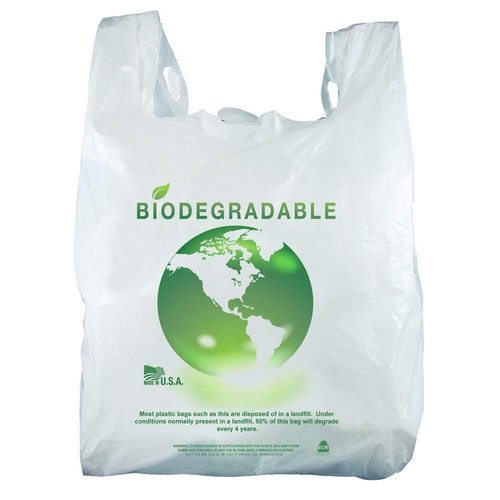Project Report For Biodegradable Plastic Manufacturing
Introduction
Project report for Biodegradable Plastic Manufacturing is as follows.
Biodegradable plastic is plastic that breaks down when it comes into contact with microorganisms. It is usually made from natural byproducts, and it is very carefully controlled in industrial environments when it comes into contact with microorganisms.
This word is more commonly used to describe bioplastics, which are plastics that break down and can be recycled or composted.
Project Report Sample On Biodegradable
Plastic Manufacturing
Get Completely Custom Bankable Project Report
They are usually made from plants like bamboo or sugarcane instead of fossil fuels. For these bioplastics to be fair and effective biodegrades, they need to be compostable according to international standards. This way, they can be used in industrial composting plants.
Biodegradable plastic is plastic that breaks down when it comes into contact with living organisms (mostly microbial). Some biodegradable plastics can be composted, but not all of them can be composted. This means that they break down under certain conditions, like those found at compost (or anaerobic digestion) sites.

Biodegradable plastics only break down in certain conditions, such as in soil, in wastewater treatment plants, and so on. Most need industrial composting facilities, which, as we’ll argue later, is where they should go.
They may be able to break down in an open environment, but the speed at which this happens isn’t well-defined, and the tests and standards for this aren’t widely used.
Compostable plastics must also meet a number of other requirements, such as not being harmful to the environment or having certain levels of pollutants like heavy metals.
On the other hand, the high cost of biodegradable plastic makes it less likely that the market will grow. If you use plastic made from polylactic acid, for example, you’ll pay at least eight times more than if you use plastic from petroleum.
However, new bioplastics made from the skins of tropical fruits at a lower price are expected to be a good source of growth in the future.
Type, application, and region are some of the ways the global biodegradable plastic market is broken down. This is how the market is broken down by type: PLA, PBAT, PBS, PHA, starch blends, and more.
Market Potential Of Biodegradable Plastic Manufacturing
Expenses

Product Cost Breakup

Reveneue Vs Expenses

Market Trend

The global market for biodegradable plastics was worth $1.6 billion in 2019. By 2027, it is expected to be worth $4.2 billion, with a CAGR of 13.3% from 2020 to 2027.
Biodegradable plastic is made from plants and does not harm the environment. It breaks down naturally into simple compounds over a period of time that isn’t too long. Plastic, on the other hand, is made of molecules that can break down naturally by the action of microorganisms. Most people know about PLA, Polybutylene adipate terephthalate (PBAT), Polybutylene sulphate (PBS), polyhydroxyalkanoates (PHA), and starch blends.
The global biodegradable plastic market is in the beginning stages of the industry’s life cycle. It is expected to look for new growth opportunities in the coming years, though. Some of the main things that are driving the demand for the market are government efforts to get rid of single-use plastic and strict regulations against the use of traditional plastic products.
Biobased products are becoming more popular in the industry because they don’t use as much conventional plastic.
It also turns out that a lot of businesses that make things like packaging, textiles, and farming equipment are switching to biobased plastic because of strict rules from the government. Such things are having a big impact on the growth of the biodegradable plastic market.
